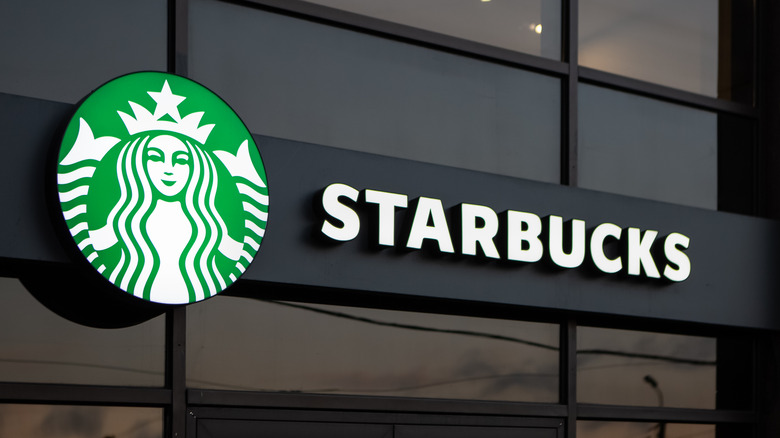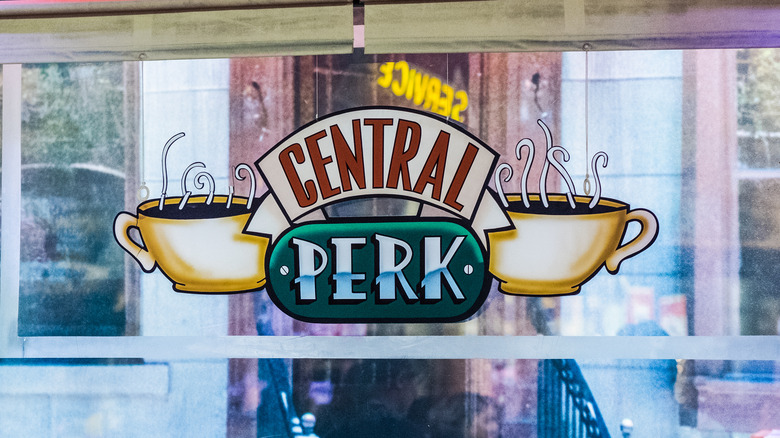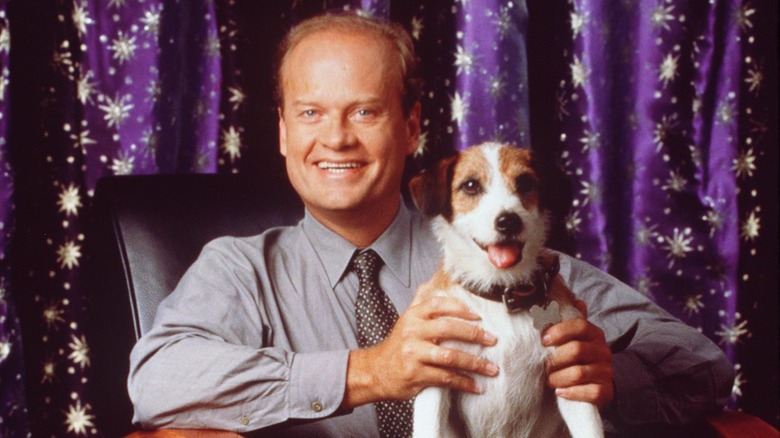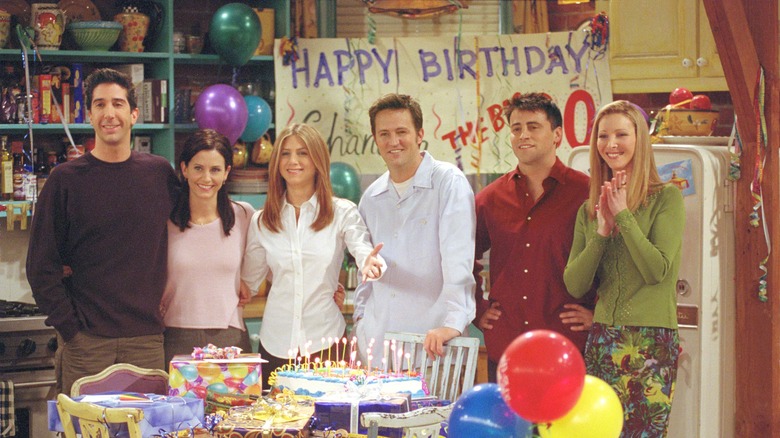Why This Starbucks Theory Will Change The Way You Think Of Friends
Conspiracy theories have been rampant for decades, but never more so than in recent years. The internet and social media have proliferated detailed and complicated stories that to many people seem true, but have no actual basis in reality when thought about logically. Believe it or not, there's a "Friends" conspiracy theory involving coffee, of course, and Starbucks specifically, that might sound like it makes perfect sense — until you dig deeper into it.
Yes, one elaborate Facebook post from 2017 theorizes that "Friends" was nothing but an extremely long and engrossing commercial for Starbucks, according to Cheat Sheet. After all, the main hangout for our six friends was a coffee house called Central Perk before coffee houses became all the rage.
Writer, musician, and voiceover artist Alex Baker conceived of this theory and used Facebook to share it due to no character limit on its posts. He then took a screenshot of it and posted the photos on Twitter to give this theory some social media traction.
Was Friends really one big Starbucks ad?
As Baker's theory goes, the entire 10-season run of "Friends" was nothing but a ploy to make drinking and hanging in coffee houses seem like the cool thing to do (via Twitter). After all, these young, hip New Yorkers did it all the time. So, why not have a commercial that lasted an entire decade and could then live on in reruns and streaming to make this happen?
Baker even found some little Easter egg clues to try and prove his theory. For example, Rachel's last name in the series was Green and the Starbucks logo, as we all know, is Green. Clever, right? And in Starbucks they yell out your name when your order is ready. Well, in German the word "gellen" means "shrill" (via WordHippo) and Ross and Monica's last name is Gellar. Is it getting weird yet?
The name theme comes through again, according to Baker's post, when it comes to Chandler Bing (Matthew Perry). The company Starbucks took the name Starbuck from the novel "Moby Dick," according to The Economic Times. "The Candles" is the name of chapter 119 (via Shmoop) in that book and a candlemaker is also known as a chandler (via Dictionary). Okay, now this is becoming creepy. Or coincidental.
The NBC Thursday night lineup connection
According to Cheat Sheet, the theory also makes mention of the popular sitcom "Cheers," which seemed to many like a very long ad for the bar life in the '80s. After all, it was where everybody knows your name. It created friends. And it also created a spin-off known as "Frasier," which took place in Seattle, the birthplace of Starbucks. Unlike the characters on "Cheers," the "Frasier" characters hung out in a coffee shop. When "Frasier" ended its run in 1993, that then made room for "Friends" to debut on the NBC lineup in 1994.
Baker went even deeper by implying that somehow "Frasier" was only on the air as essentially a pre-commercial for the one being presented on "Friends." It eased people into feeling comfortable with coffee houses rather than thinking a bar is the only place to hang out with friends and also make friends. That would mean decades worth of forethought just to get people to drink coffee with their pals in a relaxed setting.
Disproving the theory
It's clear by the way Baker words his Twitter post that he was just joking, but he did get a lot of people thinking. However, here is what he left out. Starbucks was founded in 1971, long before there was ever a "Frasier" or a "Friends" — or a "Cheers" for that matter. It was so popular by 1994 it had 425 stores and opened its first drive-thru that year (via Starbucks). "Friends" premiered toward the end of 1994, in the fall, so it likely had very little to do with that type of drive-thru popularity.
Yes, Starbucks and "Friends" both became phenomena in the 1990s, and by 2004 when Friends ended, Starbucks had a whopping 8,569 stores and has only grown over the last nearly two decades. And it is arguable that Central Perk, along with our sextet of friends, helped create that popularity. But that doesn't mean this beloved series was nothing more than a commercial for a company founded more than 20 years before "Friends" aired its very first episode.



